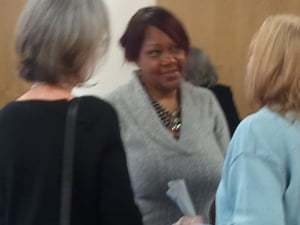 What does joy feel like?
What does joy feel like?
What does a God's ordaining moment feel like?
What does "this is the gospel incarnated" feel like?
What does a "this is why I do ministry" moment feel like?
For me, all of the questions could sum up how I felt about worship and lunch with our friends at Martin Luther King, Jr. Christian Church yesterday. We gathered together in celebration of their 30th anniversary in their worship space. Though this was the first time we'd worshipped together at 11 am, it was not the first time we'd shared fellowship together. Past events included shared lunches and a Sunday afternoon black history month program last February.
As I sit at my desk this morning, my heart just beams with joy from what our coming together meant in the larger perspective of why it is that we do church in the first place.
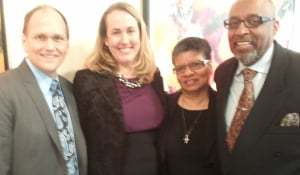 We sang out our hearts out (our choirs even practiced together prior to the service on Thursday night for two special pieces), we prayed, we gave our offerings together and we forgot about the time on the clock. I watched from my preacher's chair on the pulpit members of my congregation being moved by the spirit to clap, stand and raise their hands too in praise of God. It was good church!
We sang out our hearts out (our choirs even practiced together prior to the service on Thursday night for two special pieces), we prayed, we gave our offerings together and we forgot about the time on the clock. I watched from my preacher's chair on the pulpit members of my congregation being moved by the spirit to clap, stand and raise their hands too in praise of God. It was good church!
I was invited to preach the anniversary sermon, by MLK Christian's pastor, Rev. Dr. Jean Robinson-Casey-- a very gracious gesture coming out of our shared friendship and belief that the gospel must be lived out in diversity. It was my first time preaching in a predominantly African-American congregation and I loved it! The feedback from the congregation enlivened my spirit and I believe that could really preach like this every Sunday if given more response.
Joy for me came in simply being together.
As themes of my own life story have always included paying attention to racial reconciliation, so yesterday felt again like a moment of "this is what you were made to do." I love building relationships with those who are of different traditions with me and I'm glad when others want to build them back. Friendship is always at the heart of any change. I am proud to call Rev. Jean my friend.
As I said in my sermon, we only really know what Jesus looks like when we are in relationship with ALL of God's children. So in adding some different faces to our worship and fellowship, it felt like another dimension of the gospel was revealed to us all. It was holy ground. And, when we find holy ground, don't we want to walk on it as much as possible?
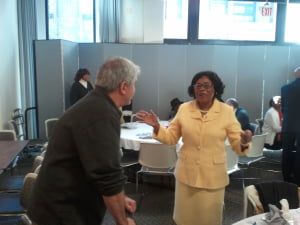 There is so much of what we do as pastors and in church that feels like grunt work-- filing papers, keeping lists, sending reminder emails about who needs to take the trash out or when Bible Study starts-- that can suck the passion out of us faster than we know it. But, yesterday was a reminder of how powerful our collective experience of church can be when we direct our administrative talents toward the relationships and the reconciliation that really matters.
There is so much of what we do as pastors and in church that feels like grunt work-- filing papers, keeping lists, sending reminder emails about who needs to take the trash out or when Bible Study starts-- that can suck the passion out of us faster than we know it. But, yesterday was a reminder of how powerful our collective experience of church can be when we direct our administrative talents toward the relationships and the reconciliation that really matters.
I believe that the expressions of friendship between the Martin Luther King, Jr. Christian Church and Washington Plaza Baptist church that continued and overflowed yesterday have only just begun. I look forward to my continued friendship with Rev. Jean and I look forward to WPBC and MLK continuing to partner together for the glory of God.
By Faith We Go On: Hebrews 12:1-2, 8-12
Martin Luther King, Jr. Christian Church 30th Anniversary Service & Joint Service with Washington Plaza Baptist Church
Now, I know that some in the congregation this morning, get to hear me talk more than they might like-- as I preach every Sunday-- but for the rest of you all gathered today, you probably don't know much about me other than the kind words that Pastor Jean shared with you earlier (thank you). So, there is something I really need to share with you about my past in order for you to get where I am coming from this morning.
As a child, on countless occasions, I desperately wanted to become my dog. Yes, my dog, named Trevor. Trevor, became a member of our family when I was in 4th grade so that my younger sister Emily would stop screaming bloody murder every time she was in a room with a dog. Though a moody and hyper pup, I loved Trevor from the start. And so, regularly, I asked my mom if he could ride along with us as she took me to school in the mornings.
One particular morning, fearing the worst day ever-- a spelling test I did not study enough for, meeting up with some potential bullies on the playground, and having to sit through an extra math class on long division-- I remember voicing to my mom just as I was about to get out of the car that I wished could become Trevor, if only for a day.
"Why?" she asked looking surprised at my request. "Why would you want to be Trevor?"
 "Well," I said, "Trevor has such a good life and he doesn't even know it. He eats. He sleeps. He plays outside and we love on him. Never does Trevor have to worry about fights with other dogs or teachers giving him bad grades or even what his friends will think of his lunch. I wish, Mom, that I could be Trevor right now! I wish; I wish!"
"Well," I said, "Trevor has such a good life and he doesn't even know it. He eats. He sleeps. He plays outside and we love on him. Never does Trevor have to worry about fights with other dogs or teachers giving him bad grades or even what his friends will think of his lunch. I wish, Mom, that I could be Trevor right now! I wish; I wish!"
Of course, you know how well my wish of transformation into a dog went over. I did not get to have a one day vocation of eating kibbles and bits and barking at cats. But while a silly wish, isn't it true that it would be a lot easier to be dog than a living, breathing, worrying, stressed out, commuting to work in traffic every day human being? (They don't call it a "dog's life" for nothing!)
So, I ask you: anyone come to church with any worries today? Anybody come to church with any heavy burdens? Anybody come to church today with cares weighing you down that you'd just like to disappear from right now and become your dog (or better yet your rich neighbor's dog) for the day?
Well, welcome to the human plight of the hard life we live in, most of the time.
Dr. Tony Campolo, champion of social justice and professor at Eastern College, PA, once shared a meditation on the difference between human beings and the rest of the members of our mammal family, saying: "Human beings, as any social scientist will tell you, are unique among all the creatures on the planet. We are the only ones who are capable of imagining the future; of looking ahead."[i]
In contrast to the carefree nature of a squirrel gathering acorns, or a horse eating hay, or a lion searching for dinner as their singular daily purpose-- we as human beings have the reasoning capacity to fear the future, plan, and to anticipate death. Unlike our furry friends, our days are easily--- just as we brought to mind a few minutes before-- filled with anxieties about what is not and what might be.
But, this is not the whole story, Dr. Campolo said. Because we do have the capacity to imagine the future and to be filled with forward directed reason-- we also have the capacity for faith. We have the ability, unlike any other creature, to see the world from a greater perspective and to join our lives into what God is already doing in the world.
Therefore, hear this: faith, as an emotion and a state of being IS a uniquely human gift. For even though we all know death (like taxes) is coming, we do not have to be trapped in fear of what we don't understand, what is not yet, and what might be generations from now. Faith helps us face our future-- even if we know not what it will be. In this hard, hard world with all its challenges and sufferings, it is faith that God has given each one of us as how to get through!
Furthermore, faith is what God gave you and you and you and me, so that we could be in relationship with the awesomeness that is the Creator of the universe. God's gift of faith is how we even have the chance of knowing the One who is the ultimate good.
In our Hebrews lesson for this morning, we hear a good sermon proclaimed to a discouraged people, a people who faced sufferings and a people who really wanted to give up on their spiritual lives. And in this sermon they are given words of hope. These hope filled words began with "by faith."
Look with me at verse one of Hebrews 11: "Now faith is the assurance of things hoped for, the conviction of things unseen."
By faith, we have the promise, of God's dwelling in what we simply cannot see or get our minds wrapped around with impossible odds of accomplishment. And, as we read on beginning at verse 8, this preacher reminds us of the story of Abraham-- a man who knew a thing or two about being asked to live in faith.
Notice with me some key points from the Hebrew preacher's retelling of Abraham's story.
 First, by faith, Abraham-- obeyed. When he knew that God had asked him to set his direction toward a particular task AND Abraham simply did what God wanted. Not what he wanted. And in obedience there was no whining. No complaining. No, "Well, God, maybe there could be another way"-- no, we read that Abraham obeyed.
First, by faith, Abraham-- obeyed. When he knew that God had asked him to set his direction toward a particular task AND Abraham simply did what God wanted. Not what he wanted. And in obedience there was no whining. No complaining. No, "Well, God, maybe there could be another way"-- no, we read that Abraham obeyed.
And, second, in this path of obedience, some unusual behavior was required-- to set out for a journey not knowing where he was going (stupidity by our modern standards of a GPS for everything, right?). But, on this unknown journey, Abraham had to be ready for whatever came, even if this meant going to a foreign land.
Not a land he knew anything about. Not a land that was comfortable for him. Not a land where he could drive by his old neighborhood every day and wave with a grin on his face of feeling secure. No, a land that was completely unknown-- with unknown people and unknown food and unknown smells and you name it: it was the unknown!
And, third, by faith, Abraham found himself without the security of permanence as he went on. Look with me in verse 9. Where does it say that Abraham lived? "in tents."
As much as Abraham hoped his journey with God would bring him fortune and wealth and a big plot of land to call his own with lots of little Abs running around-- God never gave him more than a home of a tent.
And more so, it wasn't even until the last act of his life, that God blessed him with a son, a miracle boy named Isaac. Isaac, a son that came by a promise that Abraham's descendants would be as many as the stars in the sky (but again made no logical sense). But, in all of this, by faith-- Abraham lived.
As I was reading over Martin Luther King, Jr. Christian Church's history this past week, I recognized quickly that this body of gathered believers, like Abraham knew a thing or two about the journey of "by faith."
For "by faith" in July of 1981 (I won't tell you how old I was on this day . . .), a small group of neighbors of parents of good citizens of this new community gathered and shared a crab dinner and began dreaming about being called a church together.
For "by faith" on January 15, 1982, a group of 12 committed Christ followers gathered in the home of Adelle and John Author Jones and selected a name for this new movement of the spirit and called it, Martin Luther King, Jr. Church.
For "by faith" on February 7, 1982 the group gathered again, this time at the Southgate community center to fellowship and celebrate their first worship experience together.
And, "by faith" the first interim minister, Rev. Dr. Joseph Dancy , Jr. was called to serve and lead this growing group of believers. And the word "Christian" was added to the church's name.
And, "by faith" later on Rev. Dr. Clinton D. McNair was called as pastor and lead the church alongside of you to begin to recognize that this new movement was not so new and so it needed a better "tent" to call home for the long run. "By faith" in 1987 2.3 acres of land was purchased through the sacrificial giving of so many of you at 11400 North Shore Drive in Reston.
And, the "by faith" story and it many twists and turns through the years could go on and on and I'm sure if I stopped my sermon right now and asked for testimonies, we'd be here until midnight recounting the good works, the impossible victories coming through and the lives in this community changed by the witness of this church. For, if there is anything I know about the story of Martin Luther King, Jr. Christian Church is story of "by faith."
You story has been one much like the Shel Sliverstein poem of not letting what others say about you determine you future when he wrote:
“Listen to the mustn'ts, child. Listen to the don'ts. Listen to the shouldn'ts, the impossibles, the won'ts. Listen to the never haves, then listen close to me... Anything can happen, child. Anything can be.”
You've, church, let God say to you throughout the years, "Anything can happen, child. Anything can be."
But is this enough? Should we pat ourselves on the backs and go home now?
As much as today is a celebration of the past, of the love of Christ that has been shared with the community through your hands and the hands that have gone before, today is also a crossroads of this "by faith" journey, for you, my Martin Luther King, Jr. Christian friends.
What will the title of the next chapter of your story be? In whom will you trust? And in whom will you follow? How will you choose as a church chose to move on?
And while there are countless perfect good ways that any of you could suggest for this fill in the blank statement: "We will move on by______" I suggest 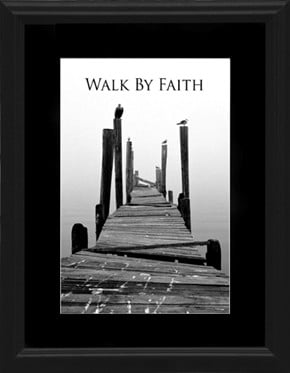 to you this morning, as one of your cheerleaders among many of us down the street there is only one way to move forward as a church and that is "by faith." Dr. King in fact once said: “Faith is taking the first step even when you can't see the whole staircase.”
to you this morning, as one of your cheerleaders among many of us down the street there is only one way to move forward as a church and that is "by faith." Dr. King in fact once said: “Faith is taking the first step even when you can't see the whole staircase.”
You know I told you that I read more about your history as a congregation before I prepared to preach today and I couldn't help as I read to pay close attention to the section of your history which highlights the tenure of my friend, Rev. Jean.
I have the utmost respect for your pastor and her leadership here. In fact, my Washington Plaza friends, it was she who gave me some of the best advice in the first couple months of my ministry in Reston when I was having one of those difficult days that come to any new pastor. She said to me, "It's going to get better. By God's help." And, "Yes, Rev. Jeanine, by God's help, we at Washington Plaza are having some good days together."
But, again, as I was reading, I noticed something unique about the focus of your current pastor, highlighted specifically about her time here and it was this sentence: "A focus area for Rev. Jean is the building of a diverse worship community that welcomes all races, creeds, and colors."
I dare say, we, the Washington Plaza Baptist community, would not be in these chairs today, if it wasn't for this faith conviction of your pastor. She's led you to claim the gospel, the whole gospel which means we've got to have people around us that don't look, think or even talk just like us to truly see the face of Christ.
And, in light of this, I can't help but think as I dream together today with you, my Martin Luther King, Jr. Christian friends that the next 30 years is going to look different from your first thirty years-- if you keep following by faith.
I might be wrong, but I can imagine that what you see today (look around the room right now) -- people of all races, creeds and colors worshipping the one God gathered here together-- is going to be a part of the what the future holds.
Sure, this congregation was founded on the need of doing church in a rich, worshipful tradition and passing down stories from one generation to another of a particular kind. But, 1982 is not 2012. And, what God needed from you, church in 1982 might not be what God needs from you faith believers of God in 2012 and beyond.
This is the reason why our movement must always be in faith. Because yes, while we know there is a future and we could very well be anxious about it (especially if we start comparing it to the past), we have a God who continually whispers in our ears the truth the Apostle Paul long ago taught us, "With God's power working in us, we can do more than we could ask for or imagine."
Because of this promise, I say dream church! Give church. I say grow church. Study church. I say give church. And in all of these things, live and move and have your being by faith.
After all, Dr. King once said: “If you can't fly then run, if you can't run then walk, if you can't walk then crawl, but whatever you do you have to keep moving forward.”
I'm excited to see where this by faith journey takes you and I even dare say takes us, as brothers and sisters in Christ, as friends, as partners in ministry together only blocks away from one another.
Can the church say Amen to our calling to "move on in faith?"
AMEN
[i] "Trusting in God in the Days that Lie Ahead" Program #4604 http://www.csec.org/csec/sermon/campolo_4604.htm
I don't know when is the last time you sat in complete darkness? How did you feel? What did you sense? What did you notice about your body, your fears or even your surroundings?
These are all questions that I want you to consider-- as we sit together in as dark of this room this evening. I invite you to clear your mind, relax and simply be in the dark as we turn all the lights off now. (Pause for 5 minutes)
----------------------
Church: in these moments of dark, what did you notice about yourself? What did you notice about this room that you did not play attention to previously?
Over the course of the next forty days, a season in the church we call Lent, our worship theme will ask us to consider again the darkness. Not only the darkness of our own souls-- the ways that we each fall short of God's best for us-- but simply to pay attention to the darkness in our world. Where are there places without hope? Where are there places without God's light? Where are there people hurting because they feel God has abandoned them?
 The funny thing is about darkness, is that the more you sit it in, the more sensitive you become to any spark of light, even if just a crack through a window. But, only if you sit with it.
The funny thing is about darkness, is that the more you sit it in, the more sensitive you become to any spark of light, even if just a crack through a window. But, only if you sit with it.
One of the first times our power went out in our current home, right after we first moved in, with boxes still strung everywhere-- piled in the hallways, blocking doors and by the staircase-- I felt immediately paralyzed.
Being new to our home and not being able to "feel" my way around and furthermore not knowing where the candles or matches or even flash lights were, I quickly began to stumble around hoping not to injury myself too badly (You know, I'm not too good at sitting still).
But, I had never been in this kind of darkness before. Everything in my surroundings felt out-of-place without any memories to guide me. So, hoping not to break a leg, I stayed put on the couch and tried to enjoy the quiet. Luckily, the power came back on within an hour.
By the next time that we experienced a power outage at night, Kevin and I were well settled into our current address. We knew the drill. All of the important boxes were unpacked. The journey upstairs to find the flash light didn't feel like so much of a risk of life because we'd journeyed through the darkness to the space before-- we knew how high to raise our feet in climbing the stairs, we knew where the walls divided rooms and we could feel our way around the bed and find the candles and lighter on the nightstand. Darkness didn't seem as scary because we'd previously experienced this space as safe.
Darkness, with practice wasn't as bad as we thought.
In our gospel reading for tonight taken from Matthew 6:1-6, we are asked to commit ourselves tonight to a different way of life than the norm. We are asked to prepare our hearts through waiting. We are asked to fast. We are asked to pray. We are asked to consider serving God in ways that might feel new to us. But, we are asked to all of these things without drawing attention to ourselves or making a big fuzz about how wonderful we are to be taking care of our spiritual lives.
In fact, Matthew's gospel tells us in verse 5 that "when we pray, we must not be like the hypocrites; for they love to stand and pray in the synagogues and at the street corners, that they may be seen by men. . . . but when you pray, go into your room and shut the door and pray to your father in heaven who is in secret; and your Father who sees in secret will reward you." Which is another way of reminding us of the benefits of sitting in darkness. While it may be more fun or more pleasurable to our egos to say our prayers or do our good deeds this Lent for all the world to see, we are asked to sit in darkness. We are asked to do in the shadows, not the limelight.
For some of us, this season of sitting in the darkness may taste like one of those disgusting flavored cough syrups our mother forced in our mouth as child. In fact, we've never been one to sit in the darkness at all. We run from it. And, what I'm asking you to do "this whole sitting in the darkness bit" could seem as scary as the day I was alone in our home in the dark for the first time. Without resources for light-- you are simply afraid.
If this is where you find yourself this Lent-- unfamiliar with this spiritual darkness-- then I say, just sit. Sit and know as you do, you might just recognize more light around you that you could not have noticed any other way. And, what a gift this Lent can be for you as you wait.
But, if you are a person who knows the shadows of the dark night of the soul-- who has been in dark season before because of some personal circumstances of your own choosing or even just because life's cruelties-- I invite you too to this season of Lent too.
This is your promise tonight: just as a space called a home can become more familiar over time, the same is true for darkness as you c ontinue to experience it. For, as we sit in darkness, as we cleave to our prayer closets of grounding our hearts and souls in Christ's light for our life, darkness can become a friend. We know that it won't kill us to sit in darkness-- eventually the light will come. We've seen it all before and lived to tell of the surprising joys of the darkest times.
ontinue to experience it. For, as we sit in darkness, as we cleave to our prayer closets of grounding our hearts and souls in Christ's light for our life, darkness can become a friend. We know that it won't kill us to sit in darkness-- eventually the light will come. We've seen it all before and lived to tell of the surprising joys of the darkest times.
So, as we receive these ashes tonight and commit as a church to the 40 days of darkness, cling to the hope of the promise. Return to your God, who is gracious and merciful, slow to anger and abounding in love.
AMEN
My beautiful church: family God gives us in each other!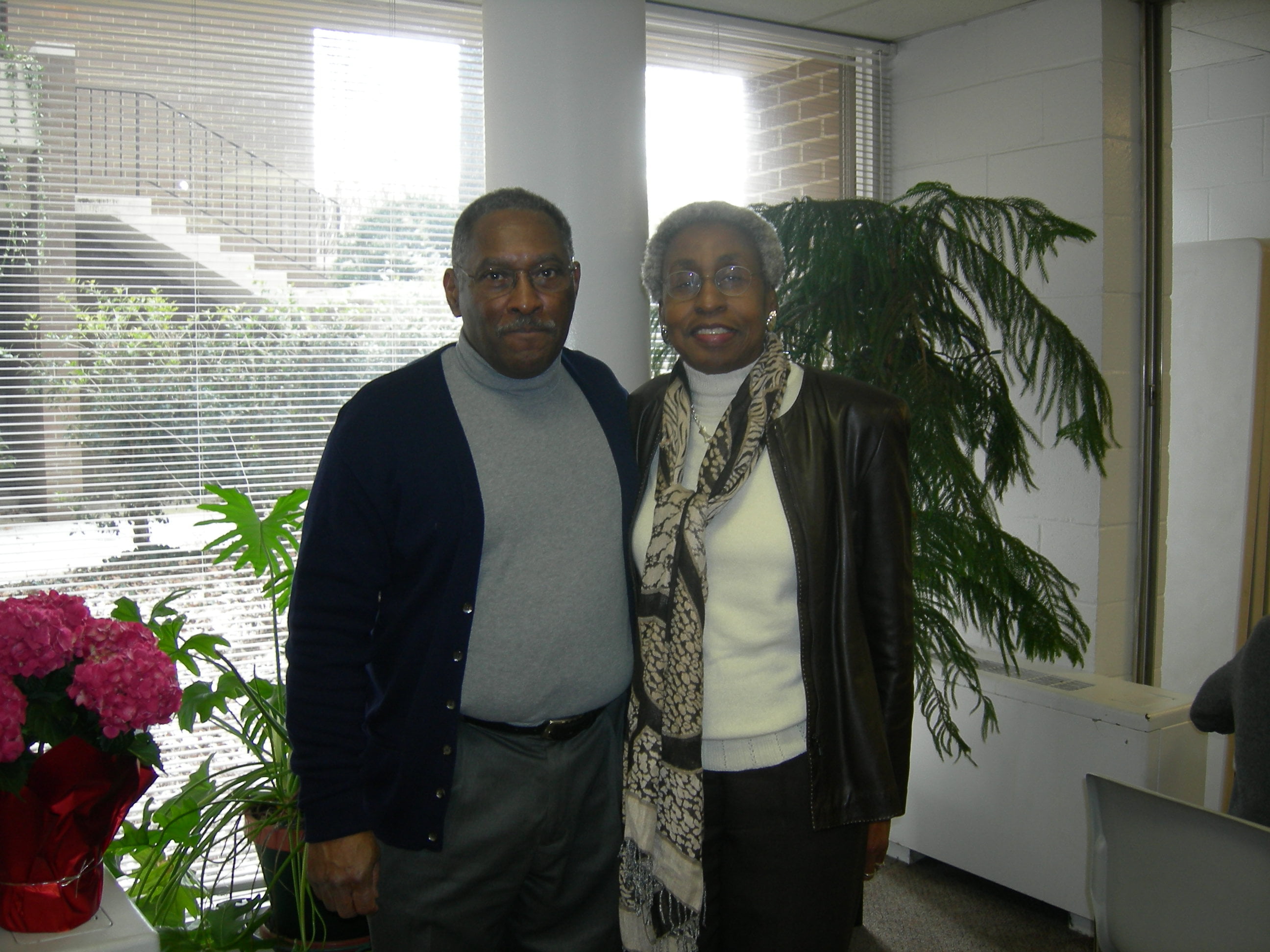
Any leader is only as good as their team mates and back-up support on call. This is what I know from being a pastor.
When I first came to Washington Plaza, as the pastor, with only two other part-time staff members to help carry the load, I had no pastoral back-up. (Not even a retired minister in the mix). I worried a lot when I was away for conferences or vacation about what might come up. (My plea to those ill: Please wait to die until my vacation is over).
Furthermore, to expect the pastor to be and always do all of the pastoral care, I knew was unhealthy and unbaptist (we love the priesthood of the believers after all).
So, I inquired of the church leadership why we did not have deacons. No one really could give me a good reason. My response became: "Why not?" (It all went back to the previous pastors' preferences, it seemed). Not only would deacons help me, but I knew it would be a blessing to the congregation. It would be a great opportunity for some very kind and spiritually aware members to live into their giftedness. A win-win!
So, in 2010, we engaged in a year-long study of the visions of what deacons would look like in the congregation-- the Washington Plaza Baptist way-- and came up with a plan. We'd follow the model of the early church and elect deacons to be spiritual leaders and servants among us. We'd call out those in our community who we felt had the gifts and interest in this kind of service through a nomination process. And, then we'd ordain each of them in a formal service of blessing their future ministry as pastoral care givers in our midst. To give the deacons the support they'd need for their 3 year term of service, we'd pledge to meet monthly as a deacon body to share joys and concerns of working alongside the families we'd been given to look after. And, no, the deacons, contrary to the standard in many Baptist churches, would not serve in an administrative capacity. We'd leave this to the Church Council.
November 2010 marked the first deacon ordination service in over two decades at Washington Plaza. It was a joyous day as you can tell from this previous post. It was one of those days as a pastor when I felt like God's spirit was especially cheering us on saying, "You are moving in the right direction as a congregation." Who says an ancient tradition can't be re-born in fruitful ways for the modern context?
This month, the official one year anniversary of our first deacon's meeting, we did some self-reflecting as a group. Though we've had a lot of learning to do over the year, I've been so proud of the ministry I've watched our deacons provide in their service to the church.
One of our current co-chairs wrote this piece to share with the congregation more about what the deacons have been up to in the last year. I thought I'd share it here so you could hear more of this co-labor of love.
Dear Church Family:
It been a little over a year since the deaconate
was re-established at WPBC, and thus it is an appropriate time to update you on what we have been doingand plan to do. You installed Rainy Barsella, Leomia Brunson, Kevin Hagea, Don Mohl, Shirley Rees, Carolyn Rieth, and Jeffrey Thigpen as deacons; personal commitments prevented Jeffrey from continuing active service, and Richard Williams agreed to serve in his stead at mid-year.
First and foremost we are all committed to our role as helpers to the congregation and the church. It has been our goal not to be noticed, but rather to quietly walk among you and provide support as needed. We see our primary task as being there for each of you in all the seasons of your life. It is this role that has motivated us to undertake a year-long study of pastoral care and spiritual direction using Jean Stairs’ book, Listening for the Soul. The study has added depth to our ministry which we hope to grow into fullness in the coming year.
As the first step in this we have begun the practice of “shut-in” communion. Each of us who has participated has been moved and sensed joy in the expansion of fellowship to those who are unable to join in our services. It is this area—strengthening the ties that bind the WPBC community together—that will continue to be the focus of our ministry. It not our task to be substitutes for Pastor Elizabeth, but rather to be aids in ministry, tasked to insure that at no time does a need of this community go unmet. In this context, we encourage you to share with your deacon who stands ready either to directly help, or to seek spiritual or physical help as needed; for we believe that each one of you is most precious to God and to WPBC.
I was getting to know a new colleague on Twitter yesterday, Elaine who did some reading on our church website. She uncovered a sermon of mine that I preached in the first month of being pastor of Washington Plaza called, "Why this Church?" I had forgotten about it, but read it again last night and was surprised at how true these words still are about the congregation I'd hoped I'd love at the time and now know I do.
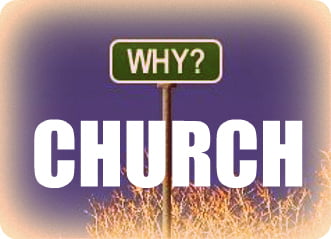 I know this is a time of the year that folks who might not otherwise be interested in church or things of faith get intrigued and start searching. So if such is your situation-- looking for a place to gather at Christmas in the Northern Virginia area-- I thought I'd post this sermon just for you. It tells the story of why churches like Washington Plaza exist and are positioned to thrive in the years to come. We are what many are looking for but just don't know is out there!
I know this is a time of the year that folks who might not otherwise be interested in church or things of faith get intrigued and start searching. So if such is your situation-- looking for a place to gather at Christmas in the Northern Virginia area-- I thought I'd post this sermon just for you. It tells the story of why churches like Washington Plaza exist and are positioned to thrive in the years to come. We are what many are looking for but just don't know is out there!
Why This Church?
Acts 10:34-43
Last week, we discussed together about why it is that the church itself is important for Christian faith—being a place where in community building and our community doing, we show the world an entirely different way of being through the name of Christ. We talked about how at its best, the church is the place where God’s kingdom comes on earth and our hands and feet are used for God’s good purposes in the world. And, we talked about the hope for the Church universal as people of faith contribute their gifts to its being.
Yet, I said very little about the particulars of this congregation, how we as the people of faith gathered here each Sunday morning at 1615 Washington Plaza fit into this story.
What is it that we have to offer as a local church to the larger Body of Christ? Why are we important?
Why should we keep working diligently at the sometimes difficult task of being a church that leaves a legacy of faith for future generations?
Speaking to these specific questions is the entire purpose of my sermon today—a sermon that I hope will encourage the goodness of God that shines so brightly here as well as challenge us about the seriousness of the journey in our future.
In our New Testament lesson this morning, we have the opportunity to peak in at a huge moment on the faith journey of Peter once again. A moment that I believe (if we look at closely) will help us know how God might be encouraging us as a church that we are doing some good things.
As we have been talking about all month, Peter’s path of faith was righteous early on. He was among the first of the disciples to publicly define how you could remain a good Jew and still follow Christ. Yet, his preaching and teaching had one primary audience: the Jews. Peter insisted that following Jesus meant still following the Jewish law—including eating foods according to the Law of Moses and worshipping in the temple.
However, the story in Acts 10 emerges as a turning point for Pete. As he was going about his devout practice of praying on the rooftop, he fell asleep. God tells Peter three times to get up and eat what Peter knew contraband foods in the Jewish law. Of course he objects, saying, “By no means Lord; for I have never eaten anything that is profane or unclean.” Yet, the Lord tells him to eat for the foods are now clean. And just as Peter is in the process of scratching his head wondering what just happened, a delegation of men arrives to see him from the house of Cornelius. The men invite Peter to go Cornelius’ home in Caesarea, a thoroughly Gentile city.
So, what happened in a matter of minutes was weird. Jews just didn’t go to social events with non-Jews out of fear of the “uncleanness” of the Gentile’s home. The risk of religious impurity was at stake, so it just wasn’t done.
But, Peter was on his way. God’s Spirit told him it was going to be alright. It was a calling of the Divine’s doing. Yet, I know as Peter made this long journey; thoughts must have been going through his head like:
“What I am thinking hanging out with these Gentiles?”
“I’m sure I’m going to be the laughing-stock of the disciples and my friends from the temple when I get back!”
“I know everyone is going to think that I’ve lost my mind going all this way to see this Gentile man I’ve never met: Cornelius!”
This is probably why we hear Peter telling Cornelius and his loved ones upon first meeting them that: “You yourselves know that it is unlawful for a Jew to associate with or to visit a Gentile.” Peter sets some boundaries in the beginning, so that Cornelius’ family knew what kind of devout person they were dealing with in talking to him.
However, it is important to note here that Cornelius wasn’t your average non-Jew. He is cited in Acts 10:2 as “a devout man who feared God with his entire household, who gave alms generously to the people and prayed constantly to God.” Cornelius loved God!
And, as Cornelius begins to share about his faith—Peter had quite a moment of epiphany. This is where we find our text for this morning picking up in verse 34 as Peter addresses the crowd saying: as one modern translation puts it: “I see very clearly that God shows no favoritism In every nation he accepts those who fear him and do what is right.”
Let me stop and read that again. “I see very clearly that God shows no favoritism In every nation he accepts those who fear him and do what is right.” Do you hear how powerful Peter’s statement truly was?
And in that moment of declaration, I believe a whole new way of seeing the world came about for Peter. Peter knew his theology had to change. He saw that the gospel was not only for those who spoke, acted, or lived as he did. He gained a friend from a different tradition than his own. And, he received from Cornelius, who was previously the kind of person he would not associate with in a religious sense, a greater understanding of what having a relationship with God meant: “God shows no favoritism.” God’s invitation of relationship was for all people, it wasn’t about the code of law anymore.
So, there was nothing for Peter to do besides give testimony to who he personally knew Jesus to be: Lord of all! And if we finished reading the chapter, we would discover that amazing spiritual electricity lit up the room. The Holy Spirit came upon all who heard Peter and the entire household received the baptism in Christ’s name. Peter’s faith was changed. You could say that he had an “inclusive conversion.”
At a previous congregation, I was assigned the same text for this morning, and hardly slept at all the night before I had to preach it. I was afraid that what I knew I had to say about it might get me fired. You see, because in reading and studying this text as I have just presented it to you, it was obvious to me that the call of Christ is one of inclusion. A non-Jew in Jesus’ day was considered to be an outsider, yet Christ was calling Peter to accept. And the same message, too translates to the “outsiders” of our time: that no matter what your race is, no matter what your religious background is, no matter what your sexual orientation is, no matter what that God loves you and wants you to know about this love. Yet, this is just not the way most modern churches function including the one I served at the time.
As marvelous as the stories of healing, peace, and justice which we find in the gospels about Jesus are, what you find in many churches today is completely different. For many faith communities the message is: come be like us, follow our interpretation of scripture, come fit in, and don’t dare to be question — because we don’t know how to deal with unanswered questions.
And while this way of being church works for many people who want a scripted pattern of what knowing God will be like (and I respect these folks as my brothers and sisters in Christ), such kinds of churches just don’t work for everyone.
These kinds of churches don’t work for the person who has an imperfect family.
It doesn’t work for the person who has doubts about their faith from time to time.
It doesn’t work for the person who believes in the priesthood of all believers.
It doesn’t work for the person who is told he or she is evil because of their sexual orientation.
It doesn’t work for the person who believes in diversity.
So, enter into the picture, Washington Plaza Baptist Church. A community that was founded as Baptist congregation, but where all the first residents of Reston knew they were welcome.
A community that has historically stood up for justice—affirming the gifts of women in ministry, helping the homeless, celebrating beautifully great Civil Rights workers of our time like Martin Luther King, Jr. and welcoming any who come in these doors.
A community where you don’t have to have agree with everyone else to be accepted. A community unlike any other in Reston and I dare say in the Northern VA area—so much so that we have regular attendees who drive miles each week to be a part of what we are.
A community where you can come with all your questions, all your uncertainties, all your burdens and find hope that there are people here who love you and want to care for you.
My new friends, this is what being church is all about. This is the kind of church that I knew I wanted to be the pastor of. This is the kind of church that I am proud to be the pastor of. This is the kind of church that the community needs to know is here.
So, why this church? Our mission focused on service and justice, our welcoming fellowship, our hopes for being an even greater presence in the Lake Anne neighborhood is exactly what Reston needs. We are the only Baptist presence of our kind in Reston!
This is a truth I believe with all my heart: our church is exactly what so many people are looking for, yet they are sitting at home this morning thinking it doesn’t exist.
We are not a congregation that looks exactly like our neighboring churches. We are not repeating something for the 20th time that has already been done. We have great purpose in our uniqueness. We are living the dream of what so many great saints of the past wished they could see.
And though we may not be the type of congregation that grows to have thousands of members one day with our own parking deck, it doesn’t mean that we aren’t important. It doesn’t mean that we aren’t doing something very valuable and needed for those who choose to join us.
We are, my friends, in our existence, living and sharing with others, Peter’s proclamation: “I now realize how true it is that God does not show favoritism, but accepts people from every nation who fear him and do what is right.”
This is the message God has given us to share with the world that even as we face this New Year with all its problems, all its hurts, all its collapsed dreams— our community has the answer: love. Just as the American journalist turned social activist for the poor and homeless, Dorothy Day once said: “The only solution is love,” so this church must continue sharing this message. Our doors need to be open to provide such a hope.
How will then, people know that we exist? Why will this church have a future?
“They will know we are Christians by our love.”
No matter what we face in our future: it is our love that will continue to allow us to shine. Our love will make all the difference. Our love will bring new people to us. Our love will help us meet community needs. Our love will carry us on for years and years to come.
Thanks be to God for such a love and such a beautiful community to live out our faith.
Amen.
How many more wake up calls do denominational leaders need before they realized that what they are doing is not working and dying a slow (and painful for the rest of us) death?
I was attending this afternoon the "Senior Pastors Only" breakout session at the DC Baptist Convention annual meeting which Washington Plaza is a member and I found myself insulted, discouraged and wanting to throw up my hands and saying, "What's the point?" once again.
Our church is a member of this ABC-USA regional body for several reasons-- we want to be connected to our larger family of Baptists, we want to be known as an American Baptist church, and we want to partner in missions. Personally, I am indebted to the DC Baptist Convention for its recognition of my ordination, vocational placement service when I was a new seminary graduate, and for the friendship with other local pastors that I have made through attending activities supported by the convention. As a church, we are personally grateful for the way in which the DC Baptist Foundation came alongside us and helped us with our loan to repair our building last year and for its celebration of diversity, especially racially in its composition of churches. I pray for a really bright future for DCBC as I think there are some good things going for us that could be even better.
But, if this current Annual meeting held this week at the Mt. Jezreel Baptist Church in Silver Spring, MD is any indication of the new direction its leadership is taking, I fear convention life in DC is a sinking ship for progressive churches like Washington Plaza. We need sessions where we stop playing around with pleasantries and simply say more often what is actually going on. There is division among us. We don't know each other. We aren't really doing anything new or exciting just going through the motions of the same old things. The church is speaking a langauge that no one "unchurched" understands or cares for anymore and denominations seem to pushing its pastors toward more of the same.
During the session I attended, the presenter addressed the room as if it was 1950 in Alabama. We were told about how to take care of our "wives and children" on repeated occasions. And the word "he" was always used as the pronoun to address who a pastor was. Even though there were at least 6 or more women in the room who were senior pastors of churches like myself, all of the examples the presenter gave related to men. For example, he goes to a men's breakfast every month with other men just like him. He started small groups for other men. It was as if the presenter assumed that the women in the room were pastors' wives. Gross. Really, really gross. And, this is not mention the fact there was no senstivity to those who are single.
I'm all for theological diversity. But, a celebration of diversity always begins with attention to context and respect for those who are different from you. Diversity always encourages out of the box thinking because no assumptions are made that individual thinking is better than that of a group.
For those who think the church and denominational life is out of touch, out of touch and dying, then I say today that I sadly agree with you. Thank goodness, I'm a Baptist after all and tomorrow I can get back to the work of my local congregation, an autonomous body of believers who isn't afraid to try new things.
Change is inevitable, growth is intentional –Colin Wilson
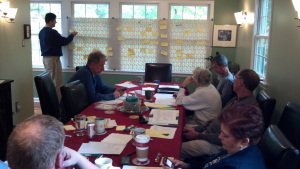 Such was one of the quotes we discussed together as a small group gathered at the Brunson's home on Tuesday night last week. Gathered together in the spirit of stewardship season as our theme is "An Intentional Life" we talked about the ways that we've each been both intentional in our life practices . . . and not.
Such was one of the quotes we discussed together as a small group gathered at the Brunson's home on Tuesday night last week. Gathered together in the spirit of stewardship season as our theme is "An Intentional Life" we talked about the ways that we've each been both intentional in our life practices . . . and not.
As we sat around the long dinning room table and shared with one another stories from our own journeys, I could help but think about a theme that has been present in several of my conversations both in and outside the church lately. "Does life get better than this?" people muse with me. "Or, must I simply resolve that this is all there is?"
Every time I've heard this question raised, a part of me has cringed on the inside because of what it says about hope. To be moving in life without hope-- to believe the pain we feel in the present and the countless ways our lives have not turned out like we'd planned is the essence of life-- seems to be giving up too soon.
I often hear people saying similar things about our church. We'll never be this or that . . . and it makes my heart hurt every time I hear it because it means folks are giving up dreaming thinking that what they see in front of them is ALL there is.
On Saturday morning, a group of us gathered ironically around the same table (thank you Brunsons again!). This time it was the church council planning retreat. We set our dreams first of what we'd like to see happen in the church in 2012 and then took a step back and said to each other we are going to be intentional to do this activity and lay aside the rest for later.
It was a freeing exercise I believe for all of us. Freeing because it allowed us to move in hope and not feel overwhelmed. While there are a lot of really GOOD things that all of us want to do (and usually it is the dreaming types that are in leadership positions in the first place), we simply can't do it all and keep going as a congregation. Putting our best foot forward often means taking a two steps back and those two steps really aren't so bad.
So, as our group drafted our 2012 intentions in areas of worship, fellowship and mission activities, we said to each other as church leaders that our little and mighty congregation is full of hope. And it is hope that we keep on keeping on and move forward.
 It has been a while since I've expressed my love in a space like this for the congregation where I serve-- something I know that few pastors can actually do honestly about their parishes. But, I can and I really want to do this today.
It has been a while since I've expressed my love in a space like this for the congregation where I serve-- something I know that few pastors can actually do honestly about their parishes. But, I can and I really want to do this today.
Why? Again, recently, I was attending (sigh) a denominational meeting (I know I tend to rant about these a lot) and when I do, I always walk away from such gatherings with a newly empowering awareness of how lucky I am to be pastoring my particular congregation. Who would want to pastor the same old, same old kind of church? Not me. Though the challenges can seem overwhelming at times as we draw a population of members who often are in transition in many aspects of our lives, I feel that together we are paving a new way doing church.
Washington Plaza is not perfect. And, of course, there is a long road of growth needed ahead of us, but there is a depth of character and authenticity here that naturally flows out of how cool these people are. And, I just get to come alongside them for the ride. . .
So, why do I love my church?
1. They love me. They are so kind to me. They treat me fairly. There isn't a week that goes by when I'm not hugged and loved on by a different person. I know they do thoughtful things for me not because I just got here and they are pretending still (because this would have long ago worn off), but because I believe this congregation and I understand each other and genuinely like each other. They treat me the way they would want to be treated. It is a good thing, a very good thing.
2. Some of the saints of God attend here. We have members who go out of their way on a weekly basis to serve in outreach ministries for the sheer sake of calling. They teach English as a second language classes. They give high school kids rides to work after morning worship, even when it means going out of their way. They collect can goods and take them to Reston Interfaith's emergency food pantry even when they are in their 80s and shouldn't be lifting things. They sit with our terminally ill members in the hospital. They give money to missions and bring food to share with our weekly community meals, even when they don't have it in their pockets to give.
3. There isn't a conversation, it seems, that they are scared of having. On this Sunday morning for example, we participated in a call to prayer for violence against transgendered persons in the DC metro area. Did anyone looked shocked? No, just nods on their faces of support saying back at me without these words, "Of course, we'll pray."
4. They are willing to try new things. Even when I have crazy idea like "let's have church in the Plaza room" as we did this past July, everyone said, "Ok, we'll try it." Not all new ideas stand the test of time, of course, but I think any reasonable idea is worth trying at least once. I see an attitude of flexibility embedded in the spirit of the people, and it makes my job so much easier.
5. They accept anybody. Really, they do, especially those who stick around and want to commit themselves to the life of the community. I never have to worry about bringing friends and folks not being nice to them. Sometimes I stand at the door on Sunday and stand alone for long periods of time because everyone is so busy talking to each other. It's so good to see that I don't mind being there alone.
I am proud to be the pastor of Washington Plaza Baptist Church for these reasons and many more-- such is my decree this Monday morning.
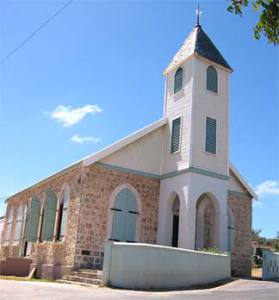 When I've been around denominational meetings and big picture think-tank type settings lately, I've left such gatherings sad more than anything. Sad not because the food was bad or the company was boring or even because I'd rather be somewhere else, but because it seemed the church (universal) is more divided than ever, focused on things that don't seem to matter to anyone other than those who are on the inside, and focused more on saving traditions than fulfilling its mission.
When I've been around denominational meetings and big picture think-tank type settings lately, I've left such gatherings sad more than anything. Sad not because the food was bad or the company was boring or even because I'd rather be somewhere else, but because it seemed the church (universal) is more divided than ever, focused on things that don't seem to matter to anyone other than those who are on the inside, and focused more on saving traditions than fulfilling its mission.
It's painful to be a part of and observe and I'm usually not one to bring such a topic up because I like to focus on what is working not what is failing. Yet, the truth remains: there's no mistake that the mainline church is in transition, if you want to use positive language, and dying if you want to be negative.
In my tradition, the Baptist church, attention and participation in associational meetings is down, especially by anyone under 65. (It's hard enough to get people to come and participate in a local church activity much less an associational event). No one really cares, as much as they did back in 1950, and often those with the time to attend programing meetings reflect the perspective of a generation long past.
I know that such a statement is nothing revolutionary to those of us who have committed our lives to the church and care about it in vocational and personal ways: we experience this tension every Sunday. I know such a statement is what best-seller books in the world of Christian publishing are all about. Leaders who can articulate a clear vision of what the future might hold or how to spin the situation in hopeful ways are authors that we all know about: Brian McLaren, Diana Butler Bass, Adam Hamilton, to just name a few.
But, as a friend of mine who doesn't attend my church, but occasionally attends hers, sat in my living room today and said to me: "You know attending church is really old news. It's just not something people think of doing first on Sundays anymore" I actually agreed with her.
Because this is true, we, as church leaders need to pay attention. We need to stop spinning our wheels on denominational reports that just file data in some tall office building somewhere, Bible studies that don't speak to the questions where most are, and worship services that don't speak a fresh word of God every time they begin. (If we refuse to change, I really wonder why some of our churches wouldn't be better off closing their doors and giving the money they make from selling their property to a good cause rather than just doing business as usual).
To begin a discussion like this is also dangerous, I know, because it assumes I have answers as to what is next; while I'm the first to admit, I'm still trying to figure things out myself.
But, what I do know is that I simply am not interested in activities that take up my time anymore that are based on expectations of keeping the same old conversations going.
Conversations like supporting women in ministry-- we are here, we are as good at our jobs as our male colleagues, and it really shouldn't be an issue anymore.
Conversations like can gay and lesbian members be welcomed in the church-- yes, they can, churches like Washington Plaza say, come home and worship with us any Sunday at 11 am.
Conversations like why do young people not like to come to our church-- they'll come if you invite them regardless of their marital or the childbearing status and seek to meet their needs the same as you would a middle-aged parent with children or a shut-in.
Conversations like why are ministers leaving the church-- they are leaving the church, especially, the young ones, because they are frustrated with having to live out their spirituality in dead communities when they can find the non-stifling presence of the Spirit of God alive and well outside of the church's four walls.
I love to be a part of imaginative conversations with hard-working, passionate leaders who take their faith seriously and who are willing to see the church as a relevant place of community and service-- not just another institution to maintain. I love to try new ideas in my local ministry context, even if they aren't approved or supported by my denominational offices. I'm loving trying to figure out how to be a pastor in a unique community in Reston where there is absolutely NO WAY that the same old, same old would ever work.
Want to keep talking about these things? Know you have a conversation partner with this pastor. My hope for the next year is to continue to meet more of you out there who are thinking similar things with the hope that something new is coming soon and its an exciting time to be a part of ushering it in!
"I love you."
It takes a relationship to a deeper level like no other three words can. Where were we when we first said the "L word?" Often couples remember this moment in their dating time together more than any other. Who said it first? How often did you want to say it afterward-- screaming to the world, "He loves me!" and "She loves me too!" Time is marked with particular delightfulness.
Recently, I was chatting with a friend, when out of the blue the conversation was ended with a hug and the simple statement of "I love you." Nothing was meant by this phrase, other than the simple wish of how much our friendship meant to him. I was taken back and warmed in spirit all at the same time.
No matter who it comes from, there is something often shock ing about these words, especially when we hear them for the first time.
ing about these words, especially when we hear them for the first time.
But, what if such a word is not said often. What if such a word has not been said in years? What if great damage has been done in the name of the "L word?" What is unconditional devotion has been promised and pain has been inflicted in its place?
Where does this leave the hopeful beauty of these words?
One of the ministries of my congregation is a card ministry: telling visitors, new members and older members alike that they are thought of when they are going through a difficult time, experience a period of joy or loss. Though I know there is not anything unusual about this (lots of churches regularly send care, concern and celebration cards to their members), the more I have observed this ministry in action, the more I've realized there is something deeply rooted in the character of our congregation through these cards. And, it's love.
The first time Kevin and I got one of these cards, I was first shocked that I got something from the church that I didn't send myself. Then, as I read the note, I was overwhelmed by the fact that every single person who signed it included the word, "Love" before their name. The genuine nature of their spirit leapt off the page. Furthermore, I was not getting special treatment because I was the pastor. This is what they did for everybody! It was such a natural practice to say to their church family: "I love you."
What might it look like if our churches used these three words more often? What if the basis of our relationships with one another began with this? What if we not only loved each other through cards, but through actions and appropriate expressions of love such as hugs more often than every couple of years?
With all of the damage that has been done by persons in positions of power using "I love you" to manipulate, control and orchestrate inappropriate relationships within the church, I fear we as people of faith have lost the beauty of these words to bringing healing, comfort and joy to those in whom we are in community with. For as much as our society has commercialized romantic love, it's not the only love to be found in our lives. I can say that if all I had in my life was the love from my significant other, I know my life would not be as rich as it is right now because I'm a part of communities full of love for one another.
Who might we need to take the leap of vulnerability with today and say simply, "I love you?" Where in our lives do we need to be more open to receive the outpouring of the blessings of love from others? How might giving and receiving love begin to transform our communities into more faithful, God centered places?
Go ahead. Just say it. "I love you."
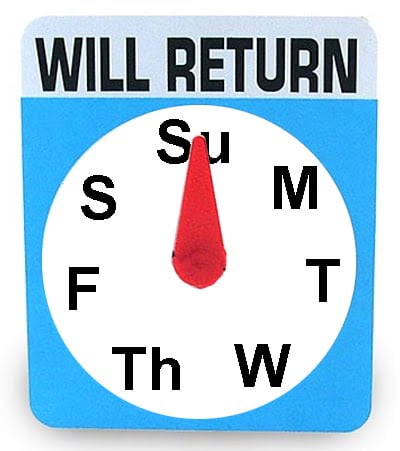 Yesterday was the last Sunday in our "Sanctuary on Sabbatical" worship series. After four weeks of worshiping in the Plaza Room sitting around round tables in a participatory style of gathering, we will return to the sanctuary this Sunday to resume "normality."
Yesterday was the last Sunday in our "Sanctuary on Sabbatical" worship series. After four weeks of worshiping in the Plaza Room sitting around round tables in a participatory style of gathering, we will return to the sanctuary this Sunday to resume "normality."
This idea for summer worship emerged out of several conversations with my clergy group during a retreat last May, and as much as I was excited about it and found the worship ministry team excited too there was fear in me about this "shaking things up" idea . I wondered what it would feel like to worship in a different space. I wondered how the congregation would respond to the intentional change. I wondered how preaching without a manuscript and notes only would feel, and could I really do it? I wondered what first time visitors would think and if they would be scared away by what one member called "coffee hour church."
Yet, unless I just haven't heard-- there haven't been too many complaints. Several folks have expressed how much they like the "close feel" of the service and how they liked how personal and engaging the sermon and music was.
I would love to hear from others about what you thought of worship this July. This is what I am thinking, though:
1. I delighted in having the personal interaction with the congregation during the sermons. Instead of going through a manuscript and wondering at times what the congregation was thinking, during the past several weeks there would be times when I would stop and ask questions and actually get to hear what the gathered community thought. Loved it!
2. With that said, my love of a manuscript has grown. As good as it was to have spontaneous responses, I look forward to getting back to having words carefully chosen. Manuscript preaching is simply my style. But as I go back to my style, I hope to incorporate a type of sermon delivery that makes space for more causal moments from time to time.
3. It was beautiful to hear Ken, our music director lead us through moments of singing that felt more worshipful than I've experienced at Washington Plaza in a long time. I look forward to the congregation singing more response songs such as "Hear Our Prayer O Lord" (which we sang every week) in the future.
4. I felt closer to my church family, their needs and prayers throughout the month. There's something about sitting close to people in worship-- you begin to realize that this "following Christ" thing is not something you are doing alone.
5. Communion was served every week, and I'm still processing how I felt about it. My goal was to offer a teachable moment between the spiritual food of communion and the physical food that we eat together each week as we gather for lunch. I'm not sure I found a way to make this connection explicit and I'm unclear if anyone in the congregation found meaning in the greater frequency of taking communion.
6. To my surprise over the past four weeks, there have been fewer people saying for lunch after the service than usual. Maybe it is because folks have gotten their "fellowship fix" during the course of the service or maybe it is summer and folks just have other places to go. The lack of people sticking around for lunch after worship has been a disappointment.
7. I will be glad not to worry so much about the room set-up. As is the case with many small churches, the pastor and a few others do a lot of the work when anything new is attempted. It took a lot of time on Sunday mornings to transform the Plaza Room (where we normally host classes and meals) into a worship space. A few of us did a lot of the work, and this always brings cause for concern and exhaustion afterwards.
So, will we do it again next summer? I hope so. All in all, it was a refreshing break, a good sabbath even with the challenges. But, see you on Sunday UPSTAIRS!